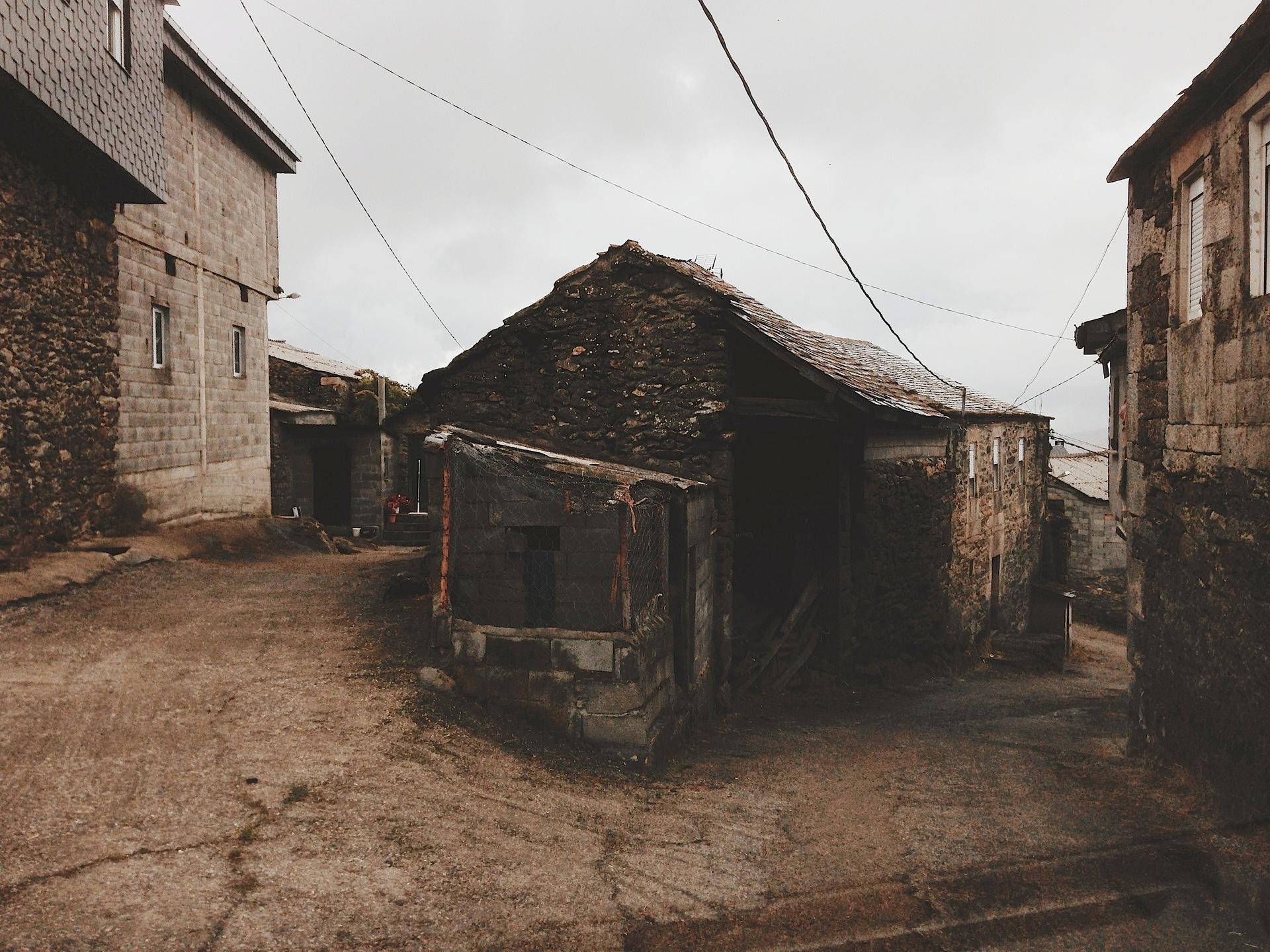In Remote Spanish Town, a Glimmer of Hope in Tantalum
Penouta, Spain, population 50. For a couple of decades back in the 60s and 70s this town boomed, as tin flowed from the nearby mine and property values soared. Today, the town lies in near ruin. There are no kids, and only three people under 40 years of age. Everyone else left long ago in search of work. The discovery of Tantalum at the old tin mine could revive the little village.
Amid the wreckage of the Spanish economy there's a small glimmer of hope in the waste of an old tin mine in northwestern Spain. It comes from tantalum, a rare and valuable metal that's vital for cellphones and tablet computers and that's been a source of controversy in other parts of the world.
Such is the case of the tiny northwestern town of Penouta, where the glimmer comes from a rare and valuable metal found in the waste from an old tin mine.
In the 1970s and '80s, Penouta could have paved its streets with tin. Rich deposits were discovered here and residents from across the region abandoned their potato plots, sold their cows and lined up to work at the new mine.
Manuel Rodriguez was one of the first. On a cold rainy morning Rodriguez slogs up a rugged mountainside to the place where he worked for 18 years; a huge white cut in the mountain, with a crystalline reservoir below.
"It was an open pit mine," he says, "The work conditions back then were tough. My job was shoveling dirt into the trucks."
But it brought a decent wage, and benefits, and the mine transformed Rodriguez's tiny farming town. New homes were built, and bars and restaurants popped up. In the county seat nearby, six new banks opened .
"We didn't think the mine would ever close," Rodriguez says.
But then suddenly it did.
That was nearly 30 years ago. Some 400 people lost their jobs and the area was devastated. Local bar owner Elvira Mendez remembers how the good times screeched to a halt.
"Back when the mine was open we had four shifts working day and night," Mendez says. "Then suddenly no one had any more income."
It was a classic boom-to-bust mining story. But now, the prospectors are back–in the same old mine. They're after something new; tantalum, a rare and now coveted metal that's vital to devices such as smartphones and tablets.
Recently a Spanish company called Pacific Strategic Minerals discovered tantalum in the slag left from the tin mine. It opened up the old mine's ransacked offices and began boring for samples.
Pacific Strategic CEO Francisco Polonio told Spanish TV back in April that his company planned to invest up to $500 million here over ten years, and create up to a hundred jobs.
Retired town councilor Amadeo Garcia says people flocked to a recruiting event.
"We got 2,400 resumes in a day," Garcia says. "People piled in from all over Spain."
That's not surprising, with unemployment at over 50 percent for young people nationwide. But so far the mine has hired just five locals, because they still don't know just how much tantalum there is in all the tin slag.
It's worth finding out, though. Tantalum is selling these days near its five-year high of more than $120 a pound, and the market has been volatile and controversial. In recent years a lot of the metal has come from the war-wracked Democratic Republic of Congo. Mines there have come under harsh criticism for terrible working and environmental conditions, and there have been sometimes violent confrontations for control of them.
Up at the Penouta mine, 35-year-old Daniel Alvarez is part of the small sampling crew. The father of two says when he was younger he had to leave town to find work. Now, he's glad to be able to come home.
Alvarez works as an assistant to company geologists, packing boxes or labeling samples.
"Whatever they need," he says. "It's great. May it go on long term."
For now, though, Penouta is in a sort of permanent state of anxiety. The day of my visit turns out to be the last day of sample-taking, and results aren't expected until the fall.
If there's enough Tantalum here, the project is probably a go. But another former employee, Miguel Rodriguez, remains skeptical. He says there are other obstacles to reopening the mine.
Rodriguez says the company would have to put in new water pump and fix up all the buildings.
"Also, with the tin mine you could just dump the muddy slag wherever," he says. "Now there are environmental rules. Too many rules."
Spain now falls under stringent European rules on mine waste. And Spanish environmental groups have been able to delay or halt other mining operations. It would be a bitter irony for locals if this project weren't up to snuff–especially if that just drove up demand at mines elsewhere with abysmal records.
But if the Penouta mine were to go full bore, it would provide jobs and a cleaner source of tantalum for a hungry global market. And local residents' dream of a second boom, of bucking Spain's current economic crisis, would come true.
At least for a while.
